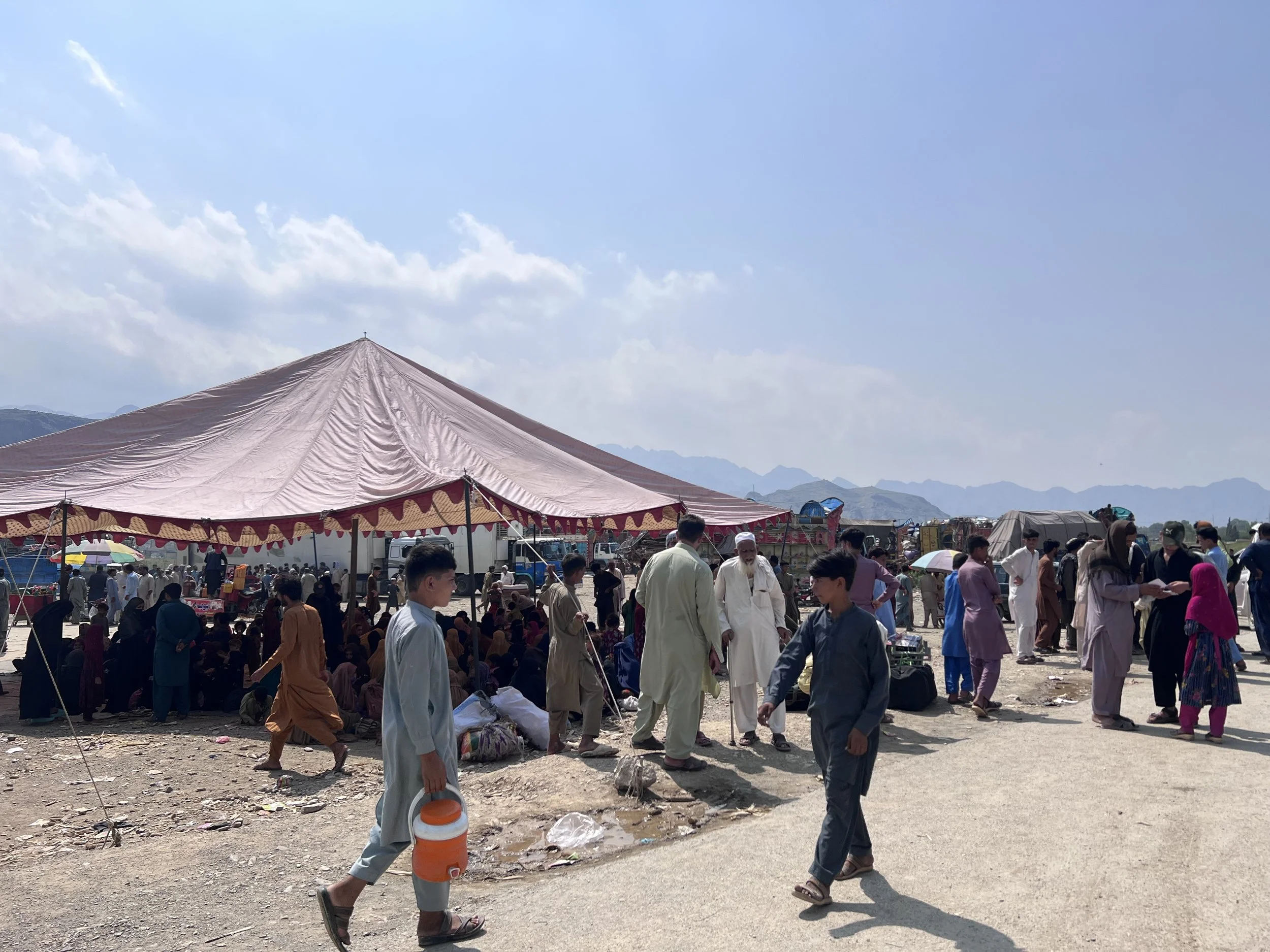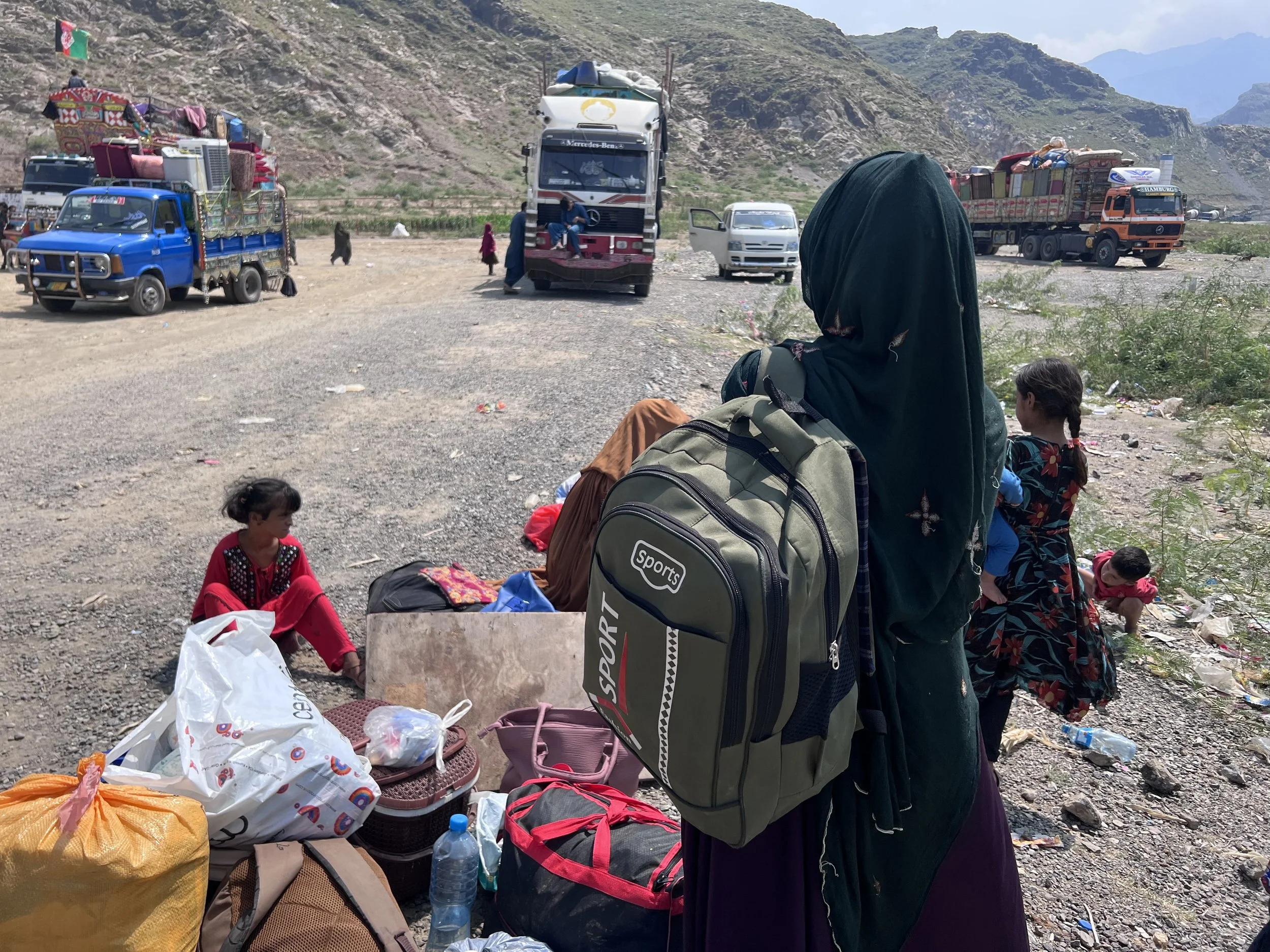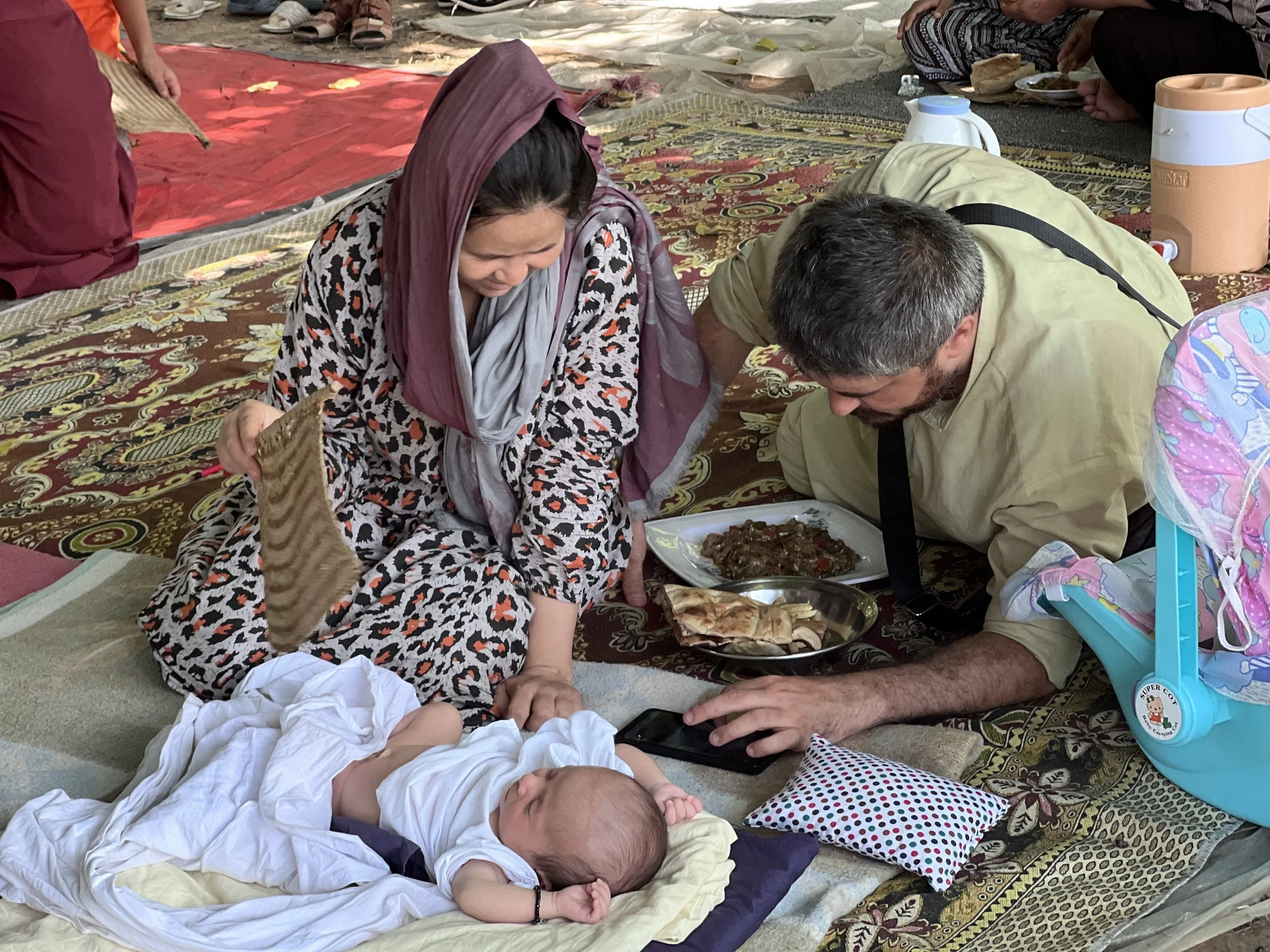Afghan Girls Face Uncertain Futures as Pakistan Deports Refugees
At the Landikotal camp, the last stop before the Pakistan-Afghanistan border, Nabeela clutched a bag of books and a few clothes. With each passing moment, she said, the dream of independence and supporting her family felt further out of reach.
“I always wanted to become a doctor because my father died when I was a child, and our family depended on my uncle,” she said. “I wanted to become financially independent and take responsibility for my family, but I feel that dream will remain a dream.”
The latest deportation of Afghan nationals from Pakistan back to Taliban-controlled Afghanistan has crushed the dreams of thousands of girls like 15-year-old Nabeela, who has spent her entire life in Rawalpindi. She had graduated to seventh grade this year but is now being forced to abandon her studies and move with her family, despite her determination to become a doctor.
For Nabeela, the thought of life in Afghanistan—where girls are barred from pursuing higher education—is terrifying. She fears her ambition to study medicine will never materialize.
Her family shares the anxiety. “We don’t know what we’re going to do in Afghanistan,” her mother said. “We’ve never even visited that region. Our elders knew it, but we have lived here for 40 years. Now we’re being forced to go to a place that feels almost like an alien country.”
Crowds gather at Landikotal camp, near the Pakistan-Afghanistan border, where temporary tents have been set up by Pakistani authorities to give shelter to families undergoing deportation processing on September 1, 2025. Families reportedly wait for as long as three to four days here. Credit: Jamaima Afridi for More to Her Story.
Pakistan has long been home to several categories of Afghan nationals: holders of Proof of Registration (PoR) cards, issued by the United Nations refugee agency between 2006 and 2007; Afghan Citizen Card (ACC) holders, introduced in 2017 for those without PoR cards; visa holders who entered legally for fixed periods; and undocumented Afghans with no official papers.
Since announcing its “Illegal Foreigners’ Repatriation Plan” on Oct. 3, 2023, Pakistan has forcibly returned more than a million Afghan refugees and asylum seekers. The government has now expanded the policy to include both PoR and ACC holders.
Roughly 1.4 million PoR cardholders and 840,000 ACC holders are now at risk of deportation. Authorities began forcible removals after the Sept. 1, 2025, deadline for voluntary departure expired. Rights groups warn that vulnerable Afghans face grave danger if returned, particularly women and girls who have been studying in Pakistan. In the Taliban’s Afghanistan, women are barred from secondary and higher education, leaving many with no chance to continue their schooling.
According to Muniza Kakar, a lawyer who represents Afghan refugees, women are facing particular hardships under Pakistan’s deportation plan for Afghan Citizen Card (ACC) and Proof of Registration (PoR) holders. PoR cards, she said, were not only essential for residency but also used to pursue education and employment.
“Many girls have contacted me with concerns for their educational progress since the deportation news,” Kakar said. “They are in the middle of their education, but now they are being asked to leave.” She added that sending women back to Afghanistan—where they cannot study, work, or move freely—would be like “sending them to jail.”
Nabeela stands in the Landikotal camp, near the Pakistan-Afghanistan border, with her family on September 1, 2025. Credit: Jamaima Afridi for More to Her Story
The barriers to resuming education inside Afghanistan are almost insurmountable. Women would need passports and visas, both expensive and difficult to obtain under Taliban restrictions. “Given the Taliban’s ban on education, it’s unlikely they would even issue documents for that purpose,” Kakar said.
UNHCR data shows that about 56,000 Afghan children are enrolled in 142 refugee schools in Khyber Pakhtunkhwa, Balochistan, and Punjab, including 19,000 girls. Another 3,131 Afghan students—577 of them female—are enrolled in private schools in Islamabad, Quetta, and Peshawar. Afghan refugees also hold reserved seats at Pakistani universities, where women are pursuing degrees in medicine, the arts, and other fields.
Qaiser Afridi, a UNHCR spokesman with no relation to the reporter, stressed that refugees must not be returned to a country where their lives or freedoms are threatened. “Afghanistan continues to face severe humanitarian and human rights challenges, particularly concerning women and girls’ access to work and education,” he told More to Her Story. “The rights and protection of women and girls must be a central consideration in any return process. UNHCR remains particularly concerned about women and girls forced to return to a country where their human rights are at risk, as well as other groups who might be endangered. We call on the authorities to ensure that any return of Afghans to Afghanistan is voluntary, safe, and dignified.”
Sanaa Alimia, an associate professor of political science at Aga Khan University and author of Refugee Cities, noted that Afghan women in Pakistan have had greater opportunities for structural and political reasons—not cultural ones. “Deporting women back to Afghanistan would significantly affect their educational opportunities,” she told More to Her Story, pointing to universities in Karachi, Peshawar, Islamabad, and Lahore where Afghan women are currently enrolled. “The threat has instilled fear among women who already face xenophobia. This situation not only threatens their right to education but also creates a sense of uncertainty and fear.”
An Afghan mother and father sit in a public park in Islamabad, Pakistan, on Aug. 20, 2025, during a demonstration against the government’s deportation measures. Days earlier, after their landlord asked them to vacate the property, the family welcomed a newborn child. Photo: Jamaima Afridi for More to Her Story
Rights groups including the Malala Fund, Amnesty International, Human Rights Watch, and PEN International have condemned the deportations, warning of grave risks for women and girls.
Among those at risk is Spogmay Masood, a sixth-semester student at Peshawar University and an emerging artist. She has three semesters left but fears deportation will cut her studies short and endanger her life.
“I am so scared of what is going to happen to us,” she said. “We literally feel like criminals, hiding and fearing that someone will deport us. I believe that not only is my education and art in danger, but also my life and my family's safety as an artist who advocates for women's rights. Women's rights, education, and art are all limited and prohibited in Afghanistan.”
A representative of the Afghan Commissionerate, speaking anonymously, confirmed that many students have sought help resisting deportation. “Without new directives, the office will be bound to existing orders, even if I personally understand and want to support the students' educational aspirations,” said the official.
Pakistan’s Chief Commissioner for Afghan Refugees, Abbas Khan, said the government had already extended the deadline for voluntary return. Now, he said, deportations will proceed. “Pakistan will sign the UN refugee convention and even adopt a national refugee law once our borders are secure and a single-document regime is implemented,” he said, arguing that signing now would “open the floodgates.”
Afridi says that UNHCR is deeply concerned over Pakistan’s plan to repatriate more than 1.3 million Afghan refugees holding PoR cards. Forced and hasty returns could endanger lives, destabilize the region, and violate the principle of non-refoulement. He noted that while the government has cited economic and security challenges, UNHCR urges Pakistan to approach the issue from a humanitarian perspective.
“Even at university, my professors and fellow students frequently ask me how I would handle being deported. The host community is unable to truly understand our suffering, and it's a stressful situation. We are genuinely experiencing extreme panic as a result of having to bring up this topic over and over,” said Spogmay.




